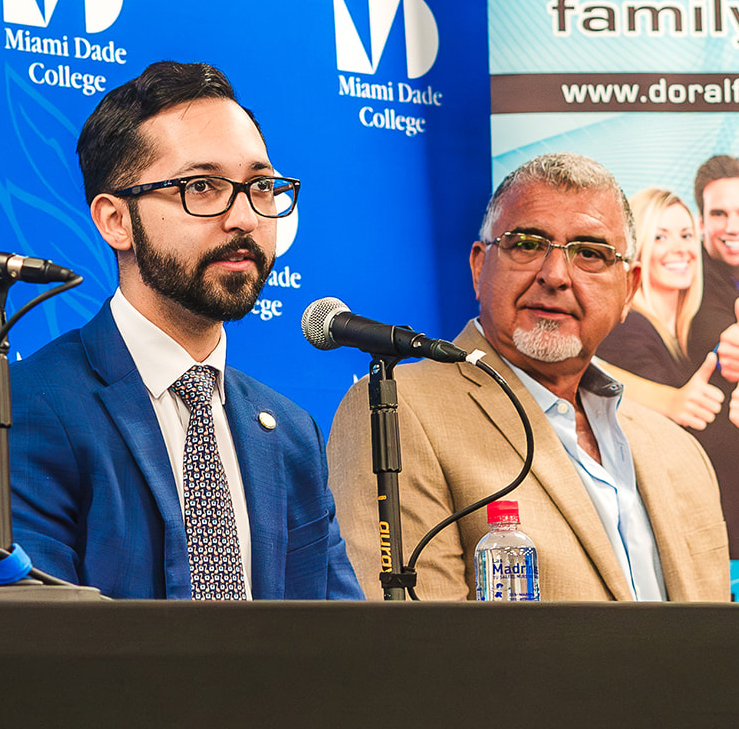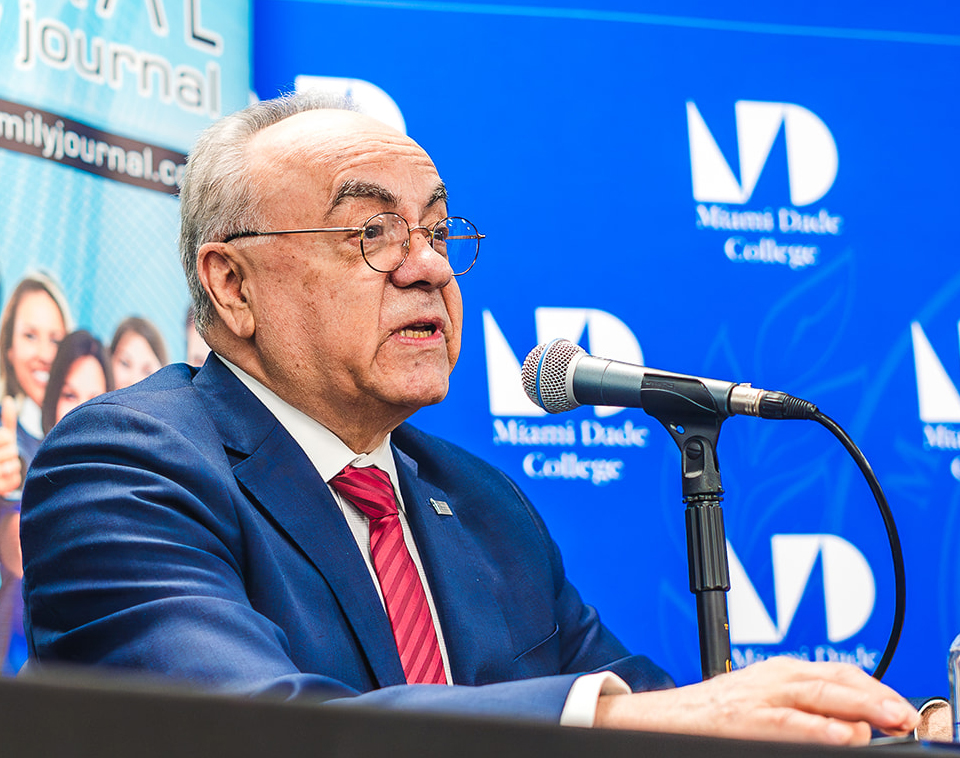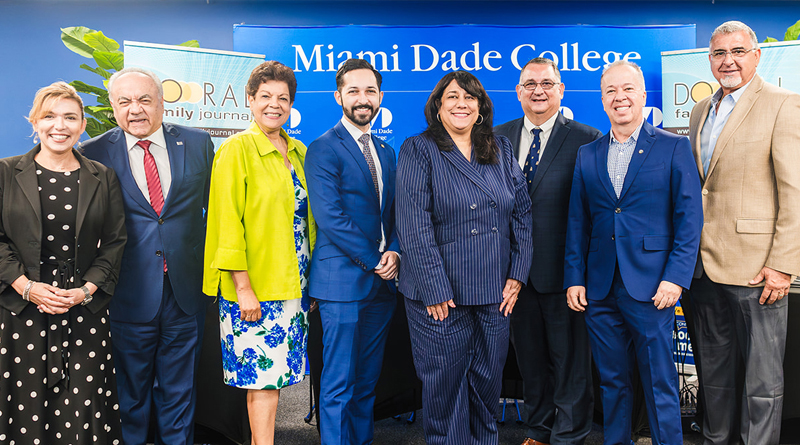Health Forum: Long-term care and quality of life for senior adults
By: Diana Bello Aristizábal
Life expectancy worldwide has increased, as has the population of senior adults living in Florida, which is growing every day. But has quality of life improved for them? And do families know how to navigate the health system appropriately?
These issues were discussed at an April forum organized by Doral Family Journal at Miami Dade College West Campus, located in Doral. Several experts met to address what can be done at the individual, collective, and governmental levels to move forward in the senior adults’ care segment.
Featured speakers were Florida House Representative for District 119, Juan Carlos Porras; Founder of the Latino Center on Aging, Mario E. Tapia; Chief Executive Officer of United Home Care, Carlos L. Martinez; Regional Manager of Advocate Health Advisors, Lupe Bruneman; and President of the Florida Adult Day Services Association (FADSA), Jason Abdala.
Moderated by Associate Professor of Psychology at MDC West Campus, Dr. Trinidad Argüelles, the forum began with her intervention. She stated that although people today live longer and healthier than generations from the past, we must be prepared for the future.

“This requires having sufficient funds and support from local, national, and international governments. In addition, to train work groups that provide the architecture, infrastructure, and research, including nanotechnology, so that people in the future age healthier and with more quality of life, which is why we started the certificate in Neuroscience and Aging at MDC.”
And what is quality of life? According to speakers, it’s not about being out of a hospital or free from deadly or common diseases, such as Alzheimer’s, as many might think.
“If you are 90 years old, but take a lot of medications, can’t get out of bed, live alone and isolated, then you have no quality of life. We must keep in mind that government programs were not designed to be long-term solutions to help us in our retirement,” Carlos Martinez says.
In his opinion, responsibility should be taken individually. “If you want to retire well, that is, travel, be with your family, eat good food and access healthcare (in other words, live with quality of life), you must start saving money early because the gap between available funding and the needs of the population continues to increase. Don’t depend on the government,” he advised.

“More advocacy and education are needed,” Jason Abdala states, adding that many families don’t know that long-term care exists through institutions like Alliance for Aging, an agency that serves Miami-Dade and Monroe counties, and whose goal is to help elderly and disabled individuals to stay at home and not end up in nursing homes.
The long-term care benefit is a Medicaid Waiver Program, one of the four ways to obtain long-term care in Florida. The other ways are to receive it from an employer, buy it individually or through the Community Care for the Elderly Program, CCE.
“To apply for the Medicaid Waiver Program, you must have a very low income. So, if you need home care and you are a schoolteacher or a retired police officer who, although not in poverty, doesn’t have much money for this, the CCE is a great choice. It has a waiting list and limited services, but it works to stabilize you,” Martinez explains.
“Medicare doesn’t cover long-term care and part of being educated is knowing how to navigate between the available options and the ones we don’t have,” Lupe Bruneman says. Given the complexity of the system, selection criteria and individual needs, the advice is to contact the Alliance for Aging when turning 60 for guidance.
Regarding the role of the government in this discussion, Juan Carlos Porras says there have been struggles in guaranteeing the continuity of these programs through the federal government. Despite this, at the state level, work has been done to increase the number of home care programs and to allocate more funds to initiatives that seek to preserve the senior adults’ health.
“There are many resources available at the local level. For example, the Memory Disorders Clinic (key at a time when the population struggles with serious memory problems), the Gordon Center at the University of Miami and the Stroke Center. I am confident we will include new state programs in the future.”
There is also the Alzheimer’s Disease Initiative, a Florida program for which the governor has significantly increased funding, considering this disease and dementia in general affect a large percentage of older adults.

“At the Hussman Institute at University of Miami, the director found that Hispanics have a gene that makes them more likely to develop Alzheimer’s and it is estimated that there are 500,000 Latinos over the age of 55 living in Miami-Dade, and 5.5 million nationwide, a number that will quadruple in the next 25 years. For this reason, we need more representation on the advisory boards and information available in Spanish,” Mario E. Tapia adds.
Finally, in addition to starting to save from a young age, speakers suggest depositing as much money as possible into retirement funds offered by employers, such as a 401(k), so that when you turn 50, there is no need to purchase long-term insurance that can cost between $600 and $1,000 a month.

